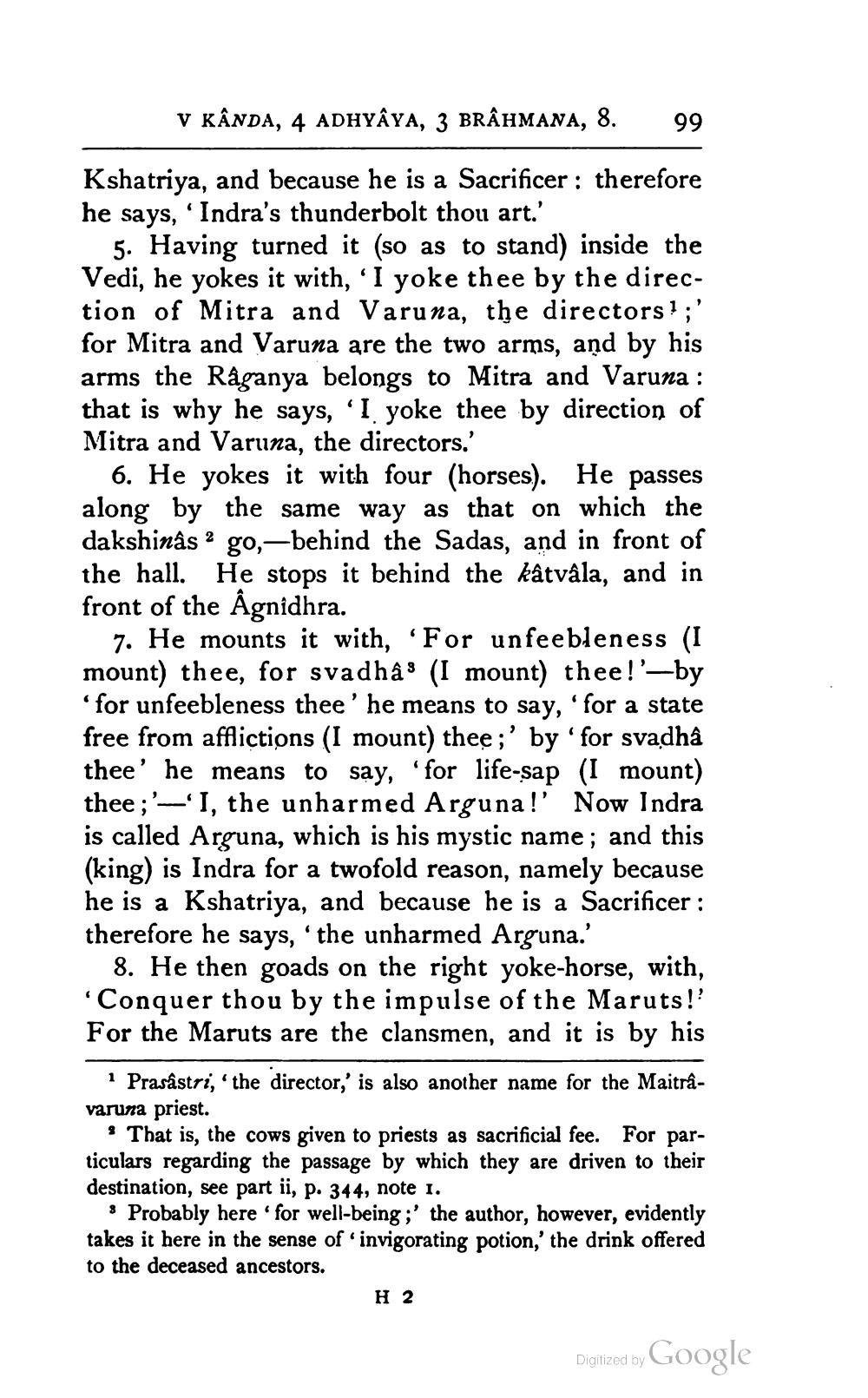________________
V KÂNDA, 4 ADHYAYA, 3 BRÂHMANA, 8.
99
Kshatriya, and because he is a Sacrificer: therefore he says, 'Indra's thunderbolt thou art.'
5. Having turned it (so as to stand) inside the Vedi, he yokes it with, 'I yoke thee by the direction of Mitra and Varuna, the directors ? ;' for Mitra and Varuna are the two arms, and by his arms the Råganya belongs to Mitra and Varuna : that is why he says, “I yoke thee by direction of Mitra and Varuna, the directors.'
6. He yokes it with four (horses). He passes along by the same way as that on which the dakshinâs ? go,-behind the Sadas, and in front of the hall. He stops it behind the kâtvåla, and in front of the Agnidhra.
7. He mounts it with, 'For unfeebleness (I mount) thee, for svadhâs (I mount) thee!'—by 'for unfeebleness thee' he means to say, 'for a state free from afflictions (I mount) thee;' by 'for svadhâ thee' he means to say, 'for life-sap (I mount) thee;'-'I, the unharmed Arguna!' Now Indra is called Arguna, which is his mystic name; and this (king) is Indra for a twofold reason, namely because he is a Kshatriya, and because he is a Sacrificer: therefore he says, 'the unharmed Arguna.'
8. He then goads on the right yoke-horse, with, 'Conquer thou by the impulse of the Maruts!? For the Maruts are the clansmen, and it is by his
? Prasastri,' the director,' is also another name for the Maitravaruna priest.
? That is, the cows given to priests as sacrificial fee. For particulars regarding the passage by which they are driven to their destination, see part ii, p. 344, note i.
Probably here for well-being ;' the author, however, evidently takes it here in the sense of invigorating potion,' the drink offered to the deceased ancestors.
H2
Digitized by Google




